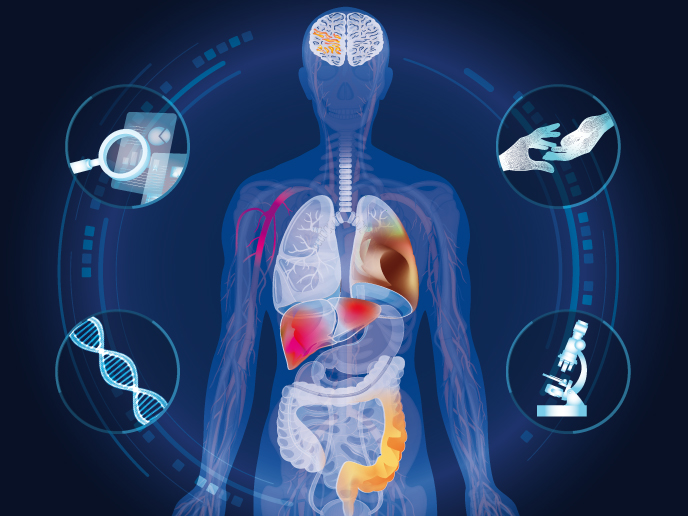Frontier research for cancer: Laying foundations for effective action
In 2020, 2.7 million people in the European Union were diagnosed with cancer, and a further 1.3 million lost their lives to the disease. Projections indicate that cancer cases will increase by 24 % by 2035, potentially making it the leading cause of death in Europe. Recognising the magnitude of this challenge, the European Commission has designated cancer as one of its five EU Missions(opens in new window), guiding research and innovation funding. The Mission aims to enhance our understanding of cancer, promote improved prevention and early detection, improve diagnostic and treatment methods, and boost quality of life for both patients and their families. Europe’s beating cancer plan(opens in new window) will direct EUR 4 billion into research efforts combined with new forms of governance and collaboration, supported by the EU4Health programme(opens in new window). The European Research Council (ERC) funds curiosity-driven research using scientific excellence as the sole criterion to award the grants. And by doing so, it plays an important role in creating new knowledge called for in this important policy area. Health research features prominently in the ERC’s project portfolio. An analysis(opens in new window) of the research funded by the ERC under the Horizon 2020 framework programme (2014-2020) revealed that approximately one third of projects funded are connected to various fields of health research. The report identified a total of 2 281 projects, which collectively received grants amounting to EUR 4.6 billion and engaged thousands of researchers from EU Member States and Associated Countries. The ERC provides support to a wide range of cancer research projects, encompassing cell and molecular biology, immunology and genetics, as well as the examination of tumour progression and the development of drugs and their delivery methods. While the majority of these projects are rooted in the life sciences, a substantial number also come from the physical sciences and engineering field as well as the social sciences and humanities. This diversity illustrates the breadth of the science supported by the ERC in the field of cancer research, highlighting the advantages of adopting a multidisciplinary approach. These ERC-funded projects are contributing to the discovery of new insights into cancer, informing prevention strategies, advancing our capacity for early detection, and shaping the development of effective treatments for those living with the disease. Collectively, the curiosity and innovative approaches have the potential to extend the lives and well-being of individuals both within Europe and around the globe, helping people to lead longer and healthier lives. The projects featured in this Results Pack reflect the breadth of approaches in tackling cancer. The VENUSCANCER project is helping us understand the reasons behind starkly different patterns of survival and avoidable deaths in cancers affecting women around the world, while BRAIN-MATCH and PedSarc offer a better understanding of the processes underlying the development of childhood cancers. The TargetBRCA and RxmiRcanceR projects have identified new treatments, PML-THERAPY is helping researchers to optimise existing therapies as well as discover new ones, and the THERMONANO project developed chemotherapy that patients can administer from the comfort of their own home. Meanwhile, the MEL-Interactions and EPIC projects developed new tools and models to categorise tumours and facilitate the creation of effective personalised treatments for cancer.



